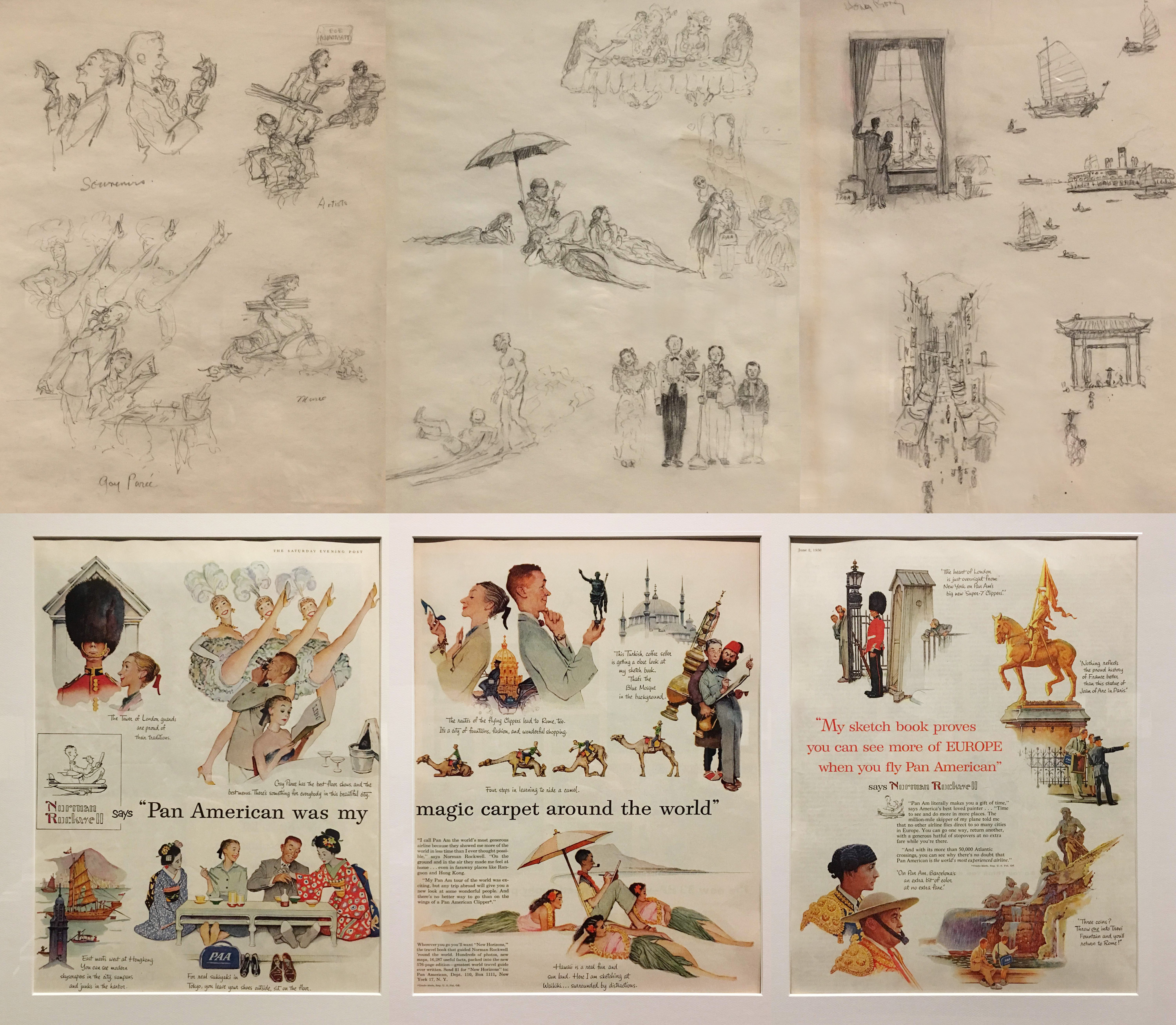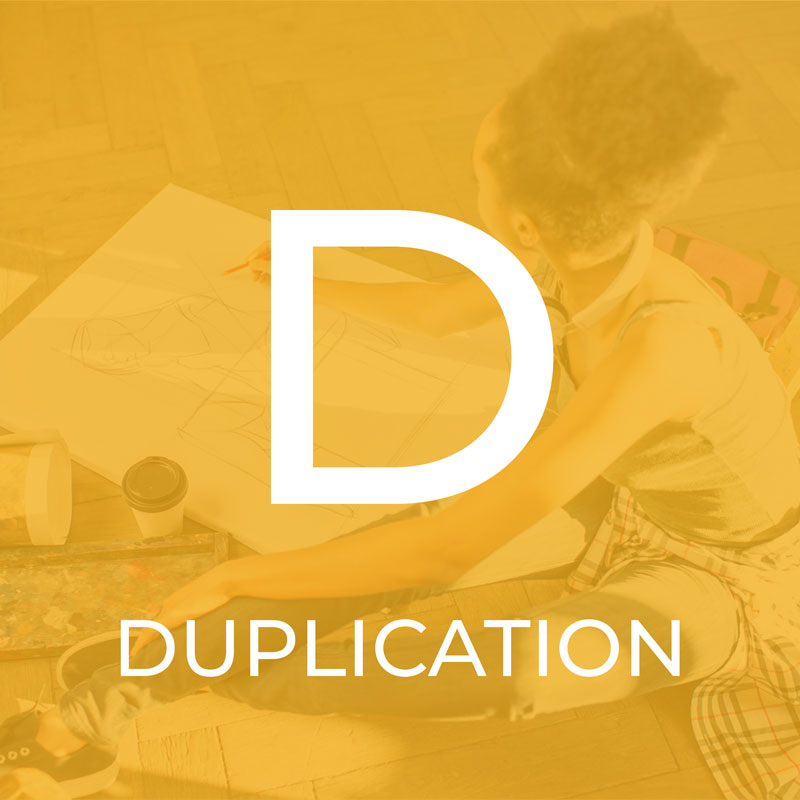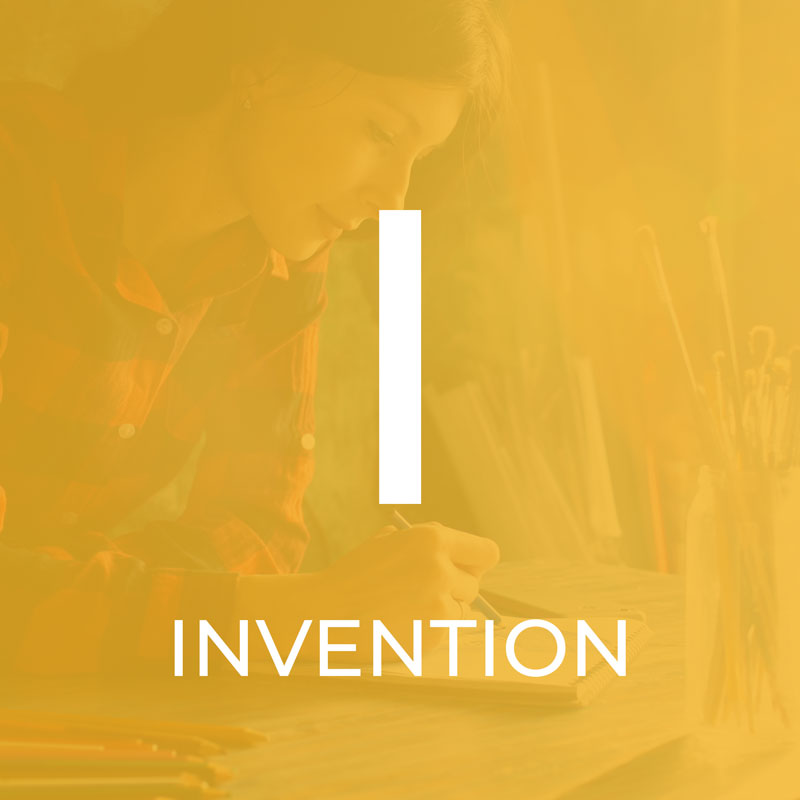< THE ART D.I.E.T.
INVENTION
For many artists, creating something meaningful from a blank page is the ultimate form of expression.
The idea of being able to invent drawings out of thin air may be the reason you were inspired to be an artist in the first place! In some ways, your ability to draw something well from memory can be a measure of your growth and experience. However, you should keep your expectations balanced about what this stage is all about. You may imagine that your favorite artists are simply creating incredible imagery from out of nowhere, and that you won’t be a real artist until you can effortlessly do what they do. If you have that mindset, though, you’ll quickly get frustrated to the point of quitting, because you’ll be comparing yourself to an imaginary ability. What your favorite artists are doing is recalling a huge library of mental information they’ve aqcuired over the years, and simply remembering hundreds, possibly thousands, of duplications and tracings they’ve done over and over again over the course of many years. So be patient with yourself! The Invention stage is where your brain gets a chance to crunch all the data you’ve collected… sometimes it’s pretty and sometimes it’s not, but it’s all incredibly useful toward your growth as an artist!

Don’t worry about “pretty” drawings! In its early stages, Invention is all about exploration and recall, not final production art. Take a look at some of Norman Rockwell’s exploration sketches. Here, he’s inventing ideas from information drawn from memory and experience. They are nowhere near the accuracy and quality of the final artworks, which were created using much more detailed reference material. In fact, some of his sketched characters are a little disfigured and out of perspective. But at this stage he was just concentrating on inventing ideas and not letting a lack of accuracy get in the way. So, as you’re coming up with ideas and concepts, loosen up and let your hand and mind experiment! You can always come back later to tighten them up using better reference.
START DRAWING!
PARENT'S GUIDE
Feng Zhu of FZD School of Design is an inspirational teacher and always speaks respectfully and encouragingly to his audience. Becuase FZD school is focused on entertainment design, there are some verbal references to various R-rated movies and MA-rated video game titles, but nothing is shown and no specific inapropriate content is mentioned. He draws some animal skulls at the end, which is part of his very successful training curriculum.
Little by little
you’ll get better
And the best way to get better at Inventing, is to:
This can’t be stressed enough! The better you’re able to draw basic primitive shapes at any angle and rotation, the more quickly your inventive sketches will improve and the clearer your stories will be. Click here to start improving your perspective skills.

You can train your brain to be more observant by doing these exercises everyday, while you’re on the bus, when youre waiting at the doctor’s office, or during a really boring office meeting.
- Start paying attention to why things look they way they do. Is it the texture, the silhouette, the amount of detail or the lack of detail? Start recording that information to mind’s hard drive
- Look at strangers from a distance (but not in a creepy way) and see if you can figure out who they are… a mom? a policeman? a medical professional? a homeless person? a drug addict? a teenager? someone on their phone? a depressed person? a happy person? . . . Determine what details about what you are seeing are making you come to those conclusions. If you have a sketchbook, make some quick drawings or textual notes. You’ll use this the next time you need to draw this kind of character, and physically writing it down will help your brain commit it to memory.
METHODS of the art D.I.E.T.
Once a week, focus your learning time on one of these four methods.





